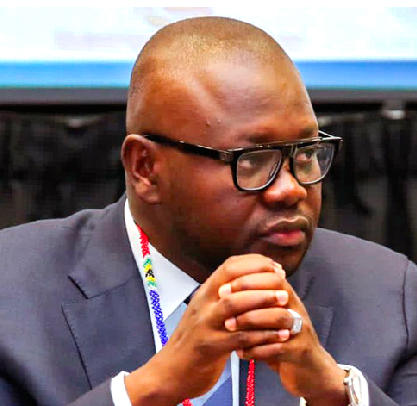Ghana is taking steps to upgrade existing slums and prevent the emergence of new ones, the Minister of Works and Housing, Francis Asenso-Boakye, has said.
He said already, a draft slum upgrading and prevention strategy had been developed but it had become eminent to update the data, following the ‘New Urban Agenda’, as well as the country’s recently published 2021 Population and Housing census.
At a high-level international meeting in Pretoria, South Africa last Sunday to launch a global action plan to transform informal settlements and slums, Mr Asenso-Boakye said the emergence of the global action plan would help shape Ghana’s strategy for effective implementation of its slum upgrading and prevention strategy.
Global Action Plan
An initiative of the United Nations Human Settlements Programme (UN-Habitat) and the Government of South Africa, the global action plan is anchored in the Slums and Informal Settlements Network (SiSnet), launched during Habitat III Conference in 2016, Quito, Ecuador, and the Participatory Slum Upgrading Programme (PSUP), initiated by the Organisation for African, Caribbean and Pacific States (OACPS) and financed by the European Commission.
The Pretoria international meeting is aimed at starting a political engagement process towards a joint global action plan framework for transforming informal settlements and slums globally.
“The importance of this global action plan framework on informal settlements and slum, therefore, cannot be over-emphasised as it will consolidate and amplify our collective resolve to accelerate the implementation of the Sustainable Development Goals (SDGs), and the New Urban Agenda (NUA).
Integrated plan
Mr Asenso-Boakye underscored the urgent need for a coherent and integrated national urban and housing policies, which prioritised the implementation of national developmental plans, policies, and result-oriented programmes and projects for slums.
The minister said the main reason for slum upgrading was that people had a fundamental right to live with basic dignity and in decent conditions.
He stated that the role cities play as drivers for sustainable development could be a catalyst “if we capture and disseminate systemic solutions.
“These can be better harnessed when there is collaboration between politics, research, business and civil society in cities”.
Governments lauded
The Executive Director of the UN-Habitat, Maimunah Mohd Sharif, lauded various governments for their resolve towards upgrading of existing and prevention of slums.
The high-level meeting also brought together ministers, top government officials, as well as civil society organisations that continue to play active roles in upgrading and transforming informal settlements.
Source: Graphic Online





